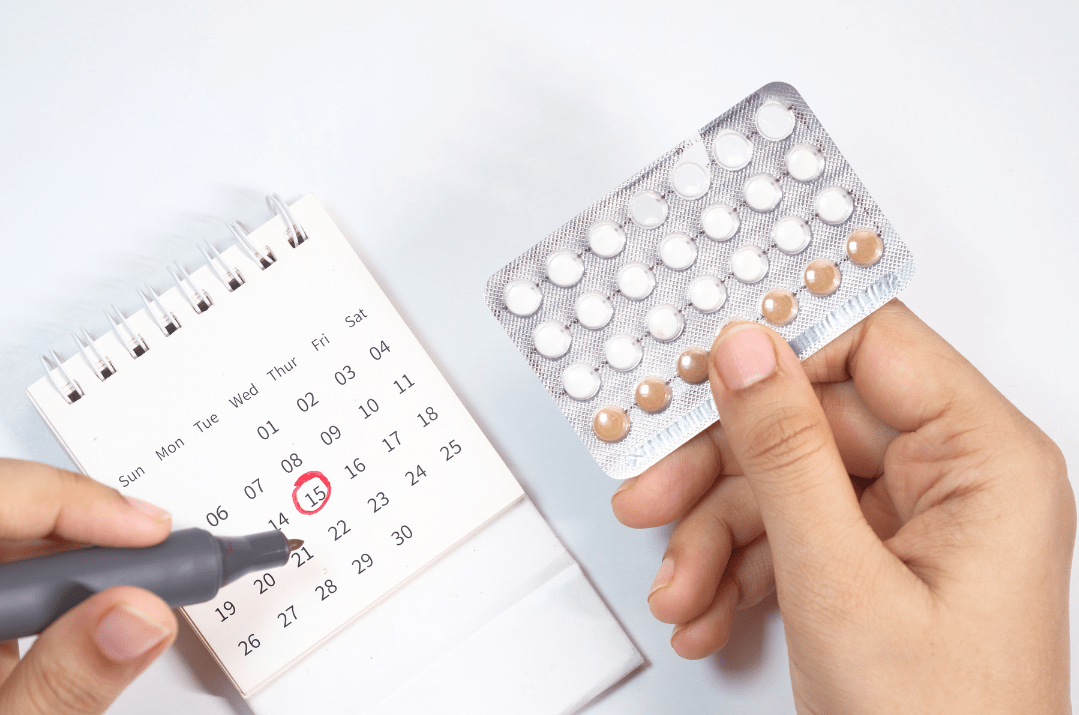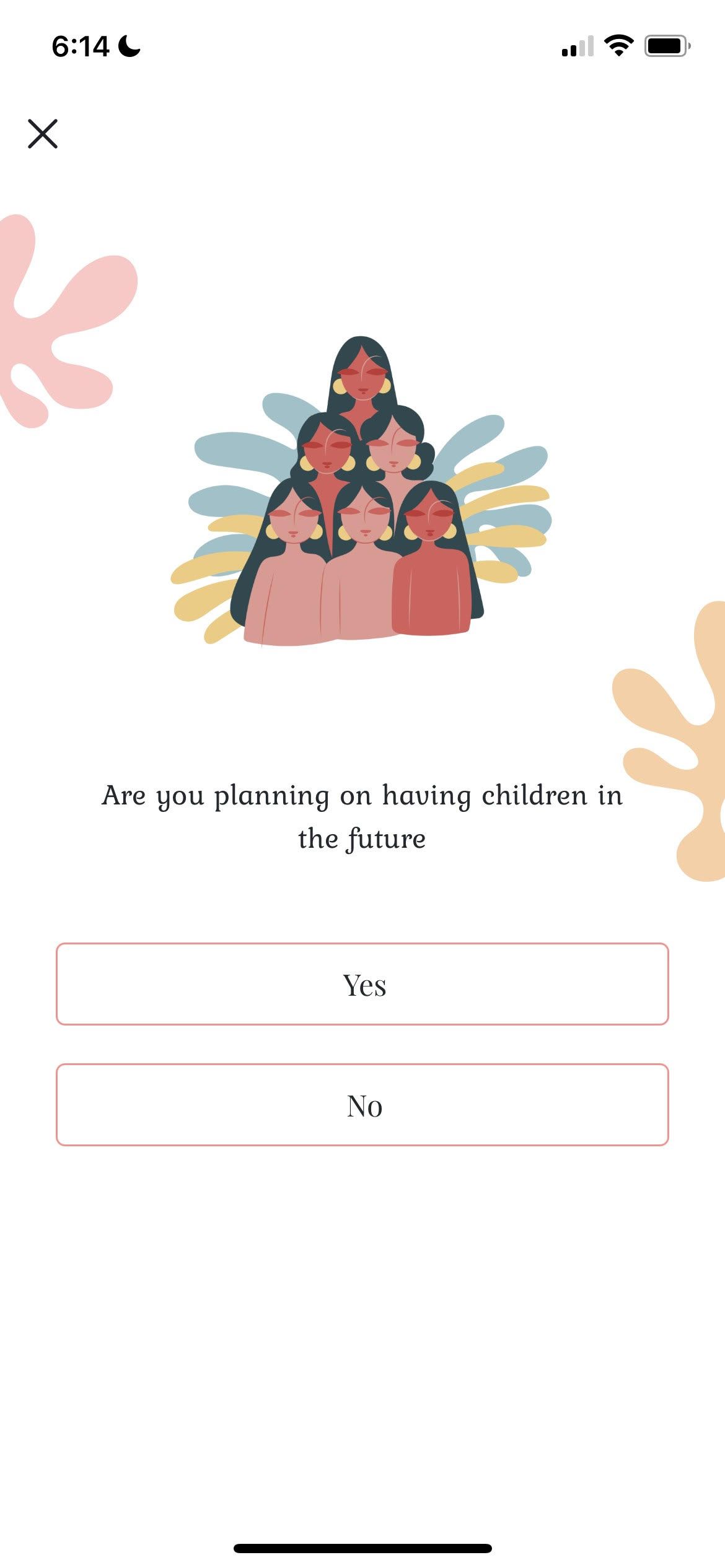Birth control pills are one of the birth control methods which can prevent pregnancy when taken consistently and in the prescribed manner. How you should take birth control pills is dependent on the type of birth control pill you’re taking. Dosing regimens differ by kind and brand. Birth control pills work by preventing ovulation, which is the release of an egg from the ovary. If an egg is not released, then there is no fertilisation with a sperm, and therefore no pregnancy! 1
Let us have a look at the dosage information for each variety:
1. Combination pills or COCPs:
Combination pills or COCPs are pills that contain a combination of 2 hormones – estrogen and progestin. They are considered the most common type of birth control pills. You will be protected from pregnancy if you take one pill every day. It is generally advised to take the pill at the same time every day, especially the more lower dose varieties like Dronis 20 and so on.2
The number of days you take a pill in a row is determined by the brand. This is because combination pills are available in a variety of dose packs ranging from 21 to 365 days.
Most brands require you to take active pills for at least 3 weeks (usually 21 days) and then inactive pills for 2 to 7 days or no pills at all. These inactive pills are basically dummy pills and they don’t contain any hormones. Due to an absence of estrogen and progesterone when you take these inactive pills or don’t take pills for 7 days, your uterus will shed its layer of blood and you will get your periods.
What is the proper way to take birth control pills?
How do you take birth control for beginners? Keep reading to find out how to use birth control pills:
a. 21-day pack: Take one pill per day for 21 days, then wait a week before beginning another pack. The week you don’t take the pill, you will get your period.
b. 28-day pack: Take one pill every day for 28 days and then begin a new pack on day 29. The first 21 or 24 pills, depending on the brand, include estrogen and progestin. The remaining tablets could be estrogen-only, inactive, or have a nutritional supplement in them. During this time, you should get a period.
c. 91-day pack: Take one pill every day for 84 days with the 91-day pack. Depending on the manufacturer, the last 7 pills may be inactive or estrogen-only, which is when you’ll start getting your period. You only have a period every three months with this dose.
d. 365-day pack: Take one pill per day for the full year. You shouldn’t get a period for the entire year if you take active pills every day.3
2. Progestin-only pills or POPs:
Progestin-only pills or POPs are pills that contain only one type of hormone – progestin, the synthetic variant of progesterone, which is a sex hormone. These pills do not have estrogen and are also called mini pills.
To avoid pregnancy, you must take progestin-only pills at the same time within 3 hours every day. For example – If you had taken the pill at 12:00 pm, you are required to take the pill before 3 pm the next day. If you take the pill after 3:00 pm, it will increase your chance to get pregnant. Alarm clocks, reminders, and birth control apps can all help you remember to take your pill.
Only 28-day (4-week) packs of progestin-only pills are available. Hormones are present in all 28 pills. To avoid pregnancy, you must take every pill in a progestin-only pack – there is no hormone-free week. Your period may arrive in the fourth week. You could also experience sporadic bleeding (spotting) or go without a period for the entire month.4
Can I start taking birth control pills at any time?
When you take birth control for the first time; remember that you can begin using birth control pills as soon as you receive them, on any day of the week and at any time during your menstrual cycle. However, whether you will be protected from pregnancy depends on when you start using birth control and the type of pill you use:
a. Combination pills (also called COCs):
The most common birth control pill is a combination pill which contains both estrogen and progestin. If you use combination pills within five days after your period starts, you’ll be protected from pregnancy right away. For example, if your period starts on a Monday morning, you can take the pill any time up to Saturday morning and be immediately protected against pregnancy.
If you start taking combination pills at any other time in your menstrual cycle, you must wait seven days before you become protected from pregnancy. If you have penetrative sex during your first week on the pill, use another method of birth control, such as a condom.
b. Progestin-only pills (also called POPs or mini-pills):
Progestin-only pills contain only one type of hormone (progestin) and no estrogen. You will be protected from pregnancy after 48 hours (two days) of taking the pill. If you have penetrative sex within the first two days, you should use other birth control methods, such as a condom.
Therefore, you do not have to wait till the first day of your period to start taking birth control pills; you can start using the pill whenever you like.
When should birth control pills be taken?
You can ask your doctor about when to take the birth control pills. If you are still having your period on the day you are supposed to start your pill pack, start it anyway. You will have your next period roughly 25 days after starting the pill pack.
It is better to take the pills at the same time every day. While you can take them whenever you want during the day, it will be easier for you to remember if you take them before breakfast or bedtime.
Skipping your period or period postponement with the combination pill is risk-free and super easy. Basically, you take a hormone-containing pill every day and skip your hormone-free reminder pills.
Why should you wait for 7 days after starting birth control?
You will have to wait seven days for the pills to start being effective and for the birth control to work. During this time, you might need to use an additional birth control method (such as condoms) to prevent pregnancy. So, you do not have to wait for the first day of your period to use the birth control pills, but remember to use an additional birth control method.5
What are the side effects of starting birth control?
You might be wondering, what happens during the first month of using birth control pills? After using the pill, some people may have symptoms like nausea, headaches, sore breasts, changes in periods (early, late, or stopping altogether while on the birth control pill) and spotting (bleeding between periods or brown discharge). The good news is that these side effects usually disappear after two to three months. So, if you have only recently started taking the pill and are experiencing these side effects, try to hold on and give your body some time to get used to the hormones.6
What is the safest birth control?
The IUD and implant are the most user-friendly and effective types of birth control, and they also work the best at preventing pregnancy. If you can use them correctly, other birth control methods, such as the birth control pill, ring, patch, and shot, are also quite effective at preventing pregnancy. However, people make mistakes, and these methods are more prone to errors when compared to implants and IUDs. Hence, the best birth control method for you is the one you will always use correctly.7
What is the best time to take birth control pills morning or night?
You can take the birth control pills at any time, either in the morning or at night, but it will be easier to remember if you take them before breakfast or bedtime. You can choose a time of day that works for you so long as you follow the recommended dosing schedule for the type of pill that you are taking. This should be a convenient and easy-to-incorporate time into your schedule so you don’t forget. The pill does not have to be taken with food. However, it’s recommended not to take them on an empty stomach if you’re susceptible to nausea.8
Can the pill stop periods?
Yes, you can continue the pill to prevent or postpone periods! Most birth control pills are packaged as 21 days of active hormone pills and seven days of inactive pills. While you take the inactive pills, menstrual-like bleeding would occur. You can choose to skip the inactive pills and continue the hormone pills to prevent or postpone periods. Nowadays, you also have many more options from pill packs with 24 days of active pills and four days of inactive pills to having pill packs with all active pills.
You can take a pill brand having three months of hormone pills in a row, so you only have your period four times a year. You can skip the hormone-free reminder pills in your pack and proceed to the next pill pack. You can do this every month and take birth control pills to stop period. You can also take birth control pills to regulate your period, but consult your doctor before doing so.
It is common to experience some bleeding or spotting when using the pill to skip your period. The spotting in between should stop after around six months if you skip your hormone-free week every month.
Using the pill to skip your period is not harmful or dangerous. Additionally, it is helpful if you want to avoid having a period on a special occasion, and you can take birth control pills to delay period for your important days. But only combination pills will allow you to skip a period. You must take every pill in your pill pack if you use a progestin-only pill (POP or Mini Pill).9
Can I get pregnant on the pill?
Yes. Despite the high success rate, birth control pills can fail, and you can become pregnant while you are using the pill. Even if you use birth control, certain factors increase your risk of getting pregnant. You should remember these things if you are sexually active and want to prevent an unplanned pregnancy. Certain conditions or behaviours can make birth control less effective in preventing pregnancy. If you forget to take your pill at the same time every day, you will increase your chances of becoming pregnant. Birth control pills are meant to maintain a constant level of hormones in your body. Hormone levels can drop very quickly if you skip or forget a dose. This may cause ovulation, depending on where you are in your cycle, and it can increase your chances of becoming pregnant.10
Birth control pills are 99 percent effective when used properly (which means taking them at the same time every day and without skipping a dose). But due to human errors and how women usually take the pill, they are about 91 per cent effective. The usual failure rate for combined oral contraceptives and progestin-only pills (often referred to as the mini pill) is 9 per cent.
Do birth control pills cause weight gain?
Although it is rare, some women experience slight weight gain when they use birth control pills. It is usually a temporary side effect caused due to fluid retention rather than extra body fat. Any weight gain is usually minimal and disappears within two to three months, just like other possible side effects of the pill. If you are one of those people who has put on some weight, consult your doctor. They will suggest a different kind of birth control pill for you. This is because all birth control pills are not the same.
While most birth control pills contain the same type of estrogen in various doses, each brand may have a slightly different form of the hormone progestin in different doses, resulting in potentially different side effects.
Early in the 1960s, when birth control pills were first being sold, their progestin and estrogen levels were very high. Due to an increased appetite and fluid retention, estrogen in high doses can lead to weight gain. So, 50 years ago, they might have led to weight gain in some women. Hormone levels in current birth control pills are much lower. Therefore, gaining weight due to birth control pills is not likely a problem.11
What do I do if I miss a pill?
If you only missed one pill, that means you are taking a birth control pill 12 hours late or if you forgot to take birth control for 1 day, take it as soon as you remember. But if you do not remember until the next day, take two pills on the same day.
If you forget about taking your pills for two days, you should take two pills the next day. Then you will return to your schedule.
If you missed more than two birth control pills, you must talk to your doctor for instructions. It will depend on the kind of pills you take. You may need to use a different method of birth control and you may need to throw away the rest of the pill pack.
However, if you forget to take any of the last seven pills (or the last 4 pills in a 24-pill pack) out of the 28-day pills. It will not increase your chances of pregnancy because these pills contain only inactive ingredients.
But some pill packs do not have any inactive pills, which is why it is essential to take all of your pills on time to keep on track.
If you forget to take a pill, you must use another birth control method until you finish the pill pack. When you forget to take a birth control pill, you increase the chances of ovulation.
If you have missed your periods and took birth control 12 hours late or forgot to take a pill for 1 or 2 days, get a pregnancy test. Even if they do not miss any pills in the pill pack, many women on low-dose birth control pills do not get a period. It is common; however, you should take the test just to be sure.12
How to quit taking the pill?
It is possible to stop taking birth control pills at any time, though stopping at the end of a pill pack is suggested. You may experience mild bleeding or spotting, and your periods may become irregular. Within two weeks, you should start ovulating again and can try for a baby.13 Remember that birth control pills do not protect you against sexually transmitted diseases, so make sure to use a condom when you have sex.
If you are worried about the right birth control option for yourself and how to take the pills, download the Pinky Promise app and consult with a gynaecologist @ ₹59/- only! You can also connect with thousands of women on our anonymous community support chat rooms. So what are you waiting for? Download the Pinky Promise App now!






